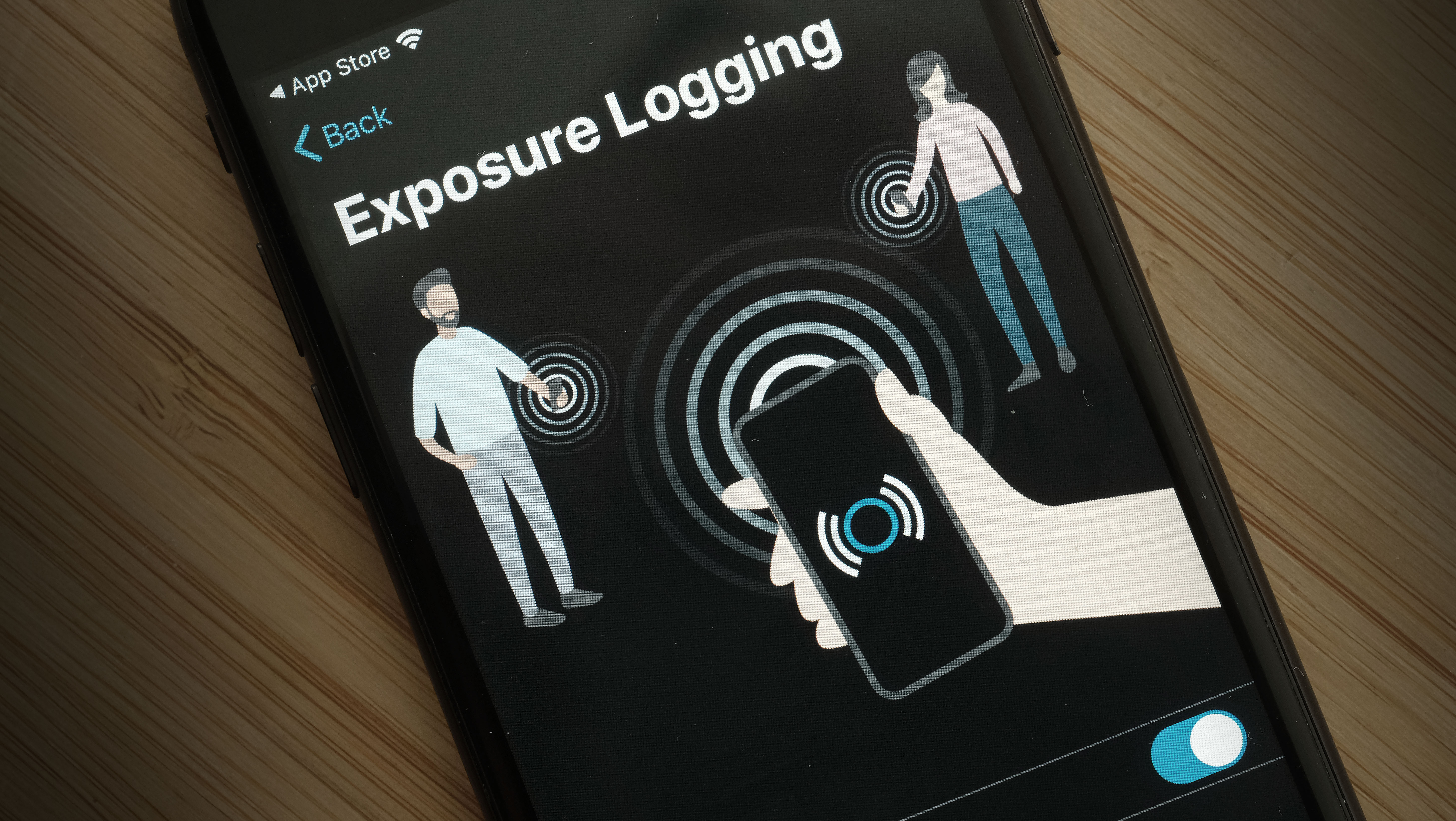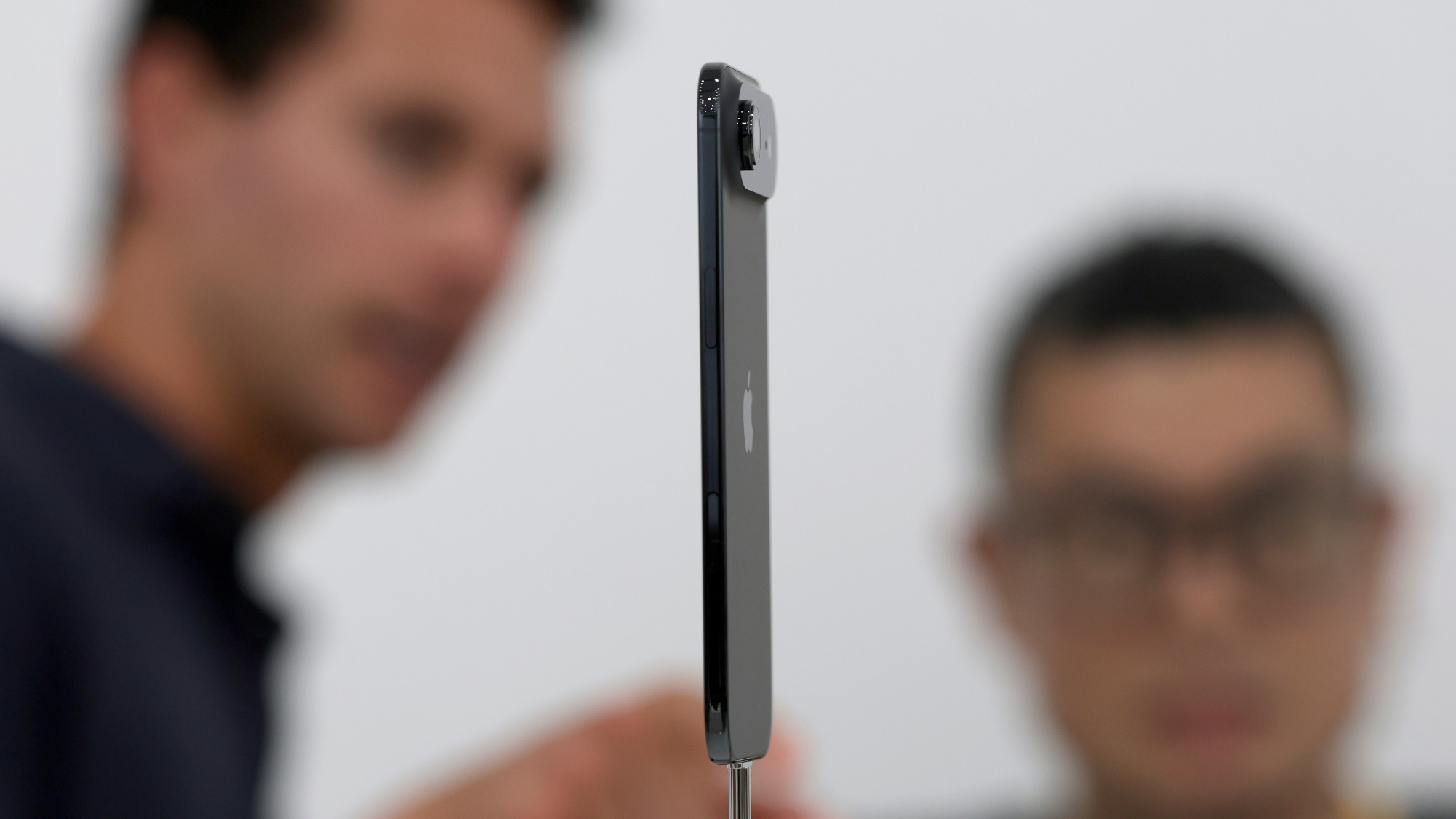Coronavirus: why has the UK abandoned its contact-tracing app?
Government now wants to use Apple and Google-based technology

A free daily email with the biggest news stories of the day – and the best features from TheWeek.com
You are now subscribed
Your newsletter sign-up was successful
The “world-beating” coronavirus-tracking app initially slated to launch in the UK six weeks ago is now not expected to be ready until autumn at the earliest - if at all.
Ministers admitted yesterday that the app “may never be released”, The Times reports, “as they abandoned a three-month attempt to create their own version of the technology”.
What went wrong?
The Week
Escape your echo chamber. Get the facts behind the news, plus analysis from multiple perspectives.

Sign up for The Week's Free Newsletters
From our morning news briefing to a weekly Good News Newsletter, get the best of The Week delivered directly to your inbox.
From our morning news briefing to a weekly Good News Newsletter, get the best of The Week delivered directly to your inbox.
The NHS app was “beset by problems from day one”, says The Guardian, “despite repeated claims to the contrary”.
On 20 May, after the original launch date had been and gone, Boris Johnson told MPs he had “growing confidence that we will have a test, track and trace operation that will be world-beating and yes, it will be in place by 1 June”.
Yet problems were already emerging during a trial of the app in the Isle of Wight. Early feedback raised questions “about glitches on some phones and the potential lack of take-up among the island’s older population”, says the newspaper.
The technical issues related chiefly to Apple handsets, adds The Times. “The NHS software registered about 75% of nearby Android handsets but only 4% of iPhones,” the paper reports.
A free daily email with the biggest news stories of the day – and the best features from TheWeek.com
According to technology website The Register, the root cause of the problem was Apple’s determination “to preserve battery power and prevent the abuse of the Bluetooth subsystem” by limiting Bluetooth access for apps not in use.
NHS engineers attempted to use “a series of clever workarounds” to prevent the app from going to sleep, an analysis by software company Reicubate found. But according to Wired, “the latest government announcement shows the approach taken hasn’t succeeded”.
Health Secretary Matt Hancock said yesterday that the government was scrapping its coronavirus contact-tracing app to focus on a version developed using Apple and Google technology.
What are other countries doing?
While the UK is not the only country to run into problems with tracking apps, it is one of the few that ignored advice from Apple and Google - as well as privacy campaigners - and pressed ahead with plans to develop a centralised system that would store details of possible infections in a government database.
“Health officials have argued they prefer this approach because they would have been able to collect data that shows ‘hotspots’ of coronavirus outbreaks and as a result send extra resources to hospitals and NHS organisations,” Wired reports.
Most other European governments, including Germany, also pursued this approach initially, but soon switched to a system developed by Apple and Google (pictured top). These apps store information about contacts between app users on the users’ own phones.
Individuals are told if they have been in close proximity to someone who has tested positive for Covid-19, but health officials are not. Governments have no access to the data.
–––––––––––––––––––––––––––––––For a round-up of the most important stories from around the world - and a concise, refreshing and balanced take on the week’s news agenda - try The Week magazine. Start your trial subscription today –––––––––––––––––––––––––––––––
What about South Korea?
Along with extensive testing, South Korea’s smartphone-based contact tracing has been credited with limiting the country’s Covid-19 death toll to less than 300.
However, South Korea’s app is much more intrusive than most, using mobile phone signal data to track users’ every movement, rather than relying on short-range Bluetooth check-ins to identify contacts.
And the app is just one part of a comprehensive tracking system, which also uses credit card transactions and CCTV to build “a public database of coronavirus cases that provides extraordinarily detailed information about every infected individual”, says Foreign Policy.
The system has also “had an unexpected side-effect - exposing those who were cheating on their partners”, adds The Independent.
How important are these apps?
“There has never been any evidence that contact tracing apps – of any sort – are hugely effective,” says Wired.
In April, the Ada Lovelace Institute warned the UK government against relying on mobile technology to track and control the pandemic.
“Premature deployment of ineffective apps could undermine public trust and confidence in the long-term, hampering the widespread uptake of tracking technologies which may be critical to their eventual success,” the independent research body said.
Germany’s widely praised track-and-trace system worked without an app until earlier this week, when a version based on the Apple-Google system was launched. Berlin abandoned plans for a centralised app in April.
What happens next in the UK?
NHS software engineers will now attempt to incorporate an improved version of Apple and Google’s decentralised tracking system into an app that will let people report their symptoms and request a Covid-19 test.
The app is due for launch in the autumn - but even then it may not include tracking.
The decision will lie with Baroness Dido Harding, the former chief executive of TalkTalk, who now leads the UK’s contact-tracing programme. She “will only give the green light to actually deploying the Apple-Google technology if she judges it to be fit for purpose, which she does not believe is the case at present”, says the BBC. “It is possible this may never happen.”
For at least the next few months, the UK will be relying on public health officials, supported by 25,000 newly recruited contact tracers, to track down people who may have been infected.
But there are doubts about that approach too.
“Epidemiologists have calculated that the high asymptomatic transmission rates of coronavirus mean that manual contact tracing alone may not be enough to keep infection levels down as lockdown restrictions are eased,” says The Times.
–––––––––––––––––––––––––––––––For a round-up of the most important stories from around the world - and a concise, refreshing and balanced take on the week’s news agenda - try The Week magazine. Start your trial subscription today –––––––––––––––––––––––––––––––
-
 How to Get to Heaven from Belfast: a ‘highly entertaining ride’
How to Get to Heaven from Belfast: a ‘highly entertaining ride’The Week Recommends Mystery-comedy from the creator of Derry Girls should be ‘your new binge-watch’
-
 The 8 best TV shows of the 1960s
The 8 best TV shows of the 1960sThe standout shows of this decade take viewers from outer space to the Wild West
-
 Microdramas are booming
Microdramas are boomingUnder the radar Scroll to watch a whole movie
-
 Will AI kill the smartphone?
Will AI kill the smartphone?In The Spotlight OpenAI and Meta want to unseat the ‘Lennon and McCartney’ of the gadget era
-
 Has Google burst the Nvidia bubble?
Has Google burst the Nvidia bubble?Today’s Big Question The world’s most valuable company faces a challenge from Google, as companies eye up ‘more specialised’ and ‘less power-hungry’ alternatives
-
 Is Apple’s Tim Cook about to retire?
Is Apple’s Tim Cook about to retire?Today's Big Question A departure could come early next year
-
 How the online world relies on AWS cloud servers
How the online world relies on AWS cloud serversThe Explainer Chaos caused by Monday’s online outage shows that ‘when AWS sneezes, half the internet catches the flu’
-
 iPhone Air: Thinness comes at a high price
iPhone Air: Thinness comes at a high priceFeature Apple’s new iPhone is its thinnest yet but is it worth the higher price and weaker battery life?
-
 Is the UK government getting too close to Big Tech?
Is the UK government getting too close to Big Tech?Today’s Big Question US-UK tech pact, supported by Nvidia and OpenAI, is part of Silicon Valley drive to ‘lock in’ American AI with US allies
-
 Google: A monopoly past its prime?
Google: A monopoly past its prime?Feature Google’s antitrust case ends with a slap on the wrist as courts struggle to keep up with the tech industry’s rapid changes
-
 South Korea's divide over allowing Google Maps
South Korea's divide over allowing Google MapsTalking Points The country is one of few modern democracies where the app doesn't work